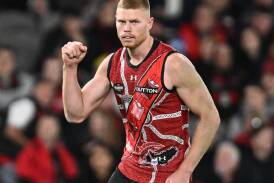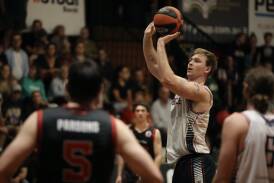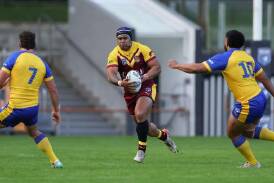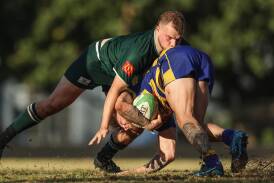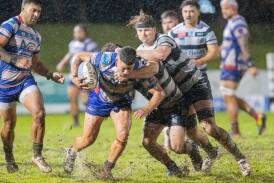NORTHERN NSW Football will work to improve the decision-making process in dealing with extreme heat after a game was played in what Lake Macquarie coach Nick Webb described as “dangerous” conditions on Sunday.
Subscribe now for unlimited access.
$0/
(min cost $0)
or signup to continue reading
As temperatures soared into the high 30s, all Herald Women’s Premier League football and the under-20s Northern NSW NPL men’s match between Hamilton and Charlestown at Darling Street Oval were called off after consensus between the clubs involved on Sunday. The second-tier South Cardiff versus New Lambton match at Ulinga Oval was also postponed.
However, the senior NPL matches between Lake Macquarie and Broadmeadow at Macquarie Field at Speers Point went ahead.
Magic thrashed Lakes 6-0 in the top-grade game, which kicked off at 2.30pm. Under the NNSWF hot weather policy, it is recommended senior games be cancelled when temperatures hit 37 degrees.
According to Bureau of Meteorology figures, the temperature at Lake Macquarie (Cooranbong) was 37.8 at 2.30pm and it climbed as high as 38.2 during the match.
Webb said the conditions were no excuse for the scoreline but the heat was “ridiculous”.
“I’ll be honest, I thought it was dangerous yesterday,” Webb said on Monday.
“It really was. We had players coming over before half-time getting drinks in between the drinks breaks because they were dizzy.
“I looked at my phone as we walked out and it said 39.2 and it felt worse than that.
“It was definitely dangerous out there. There were a lot of boys that will take a week or two to recover. They go out there and probably lose five kilos.”
Clubs, who were reminded last week of the hot weather policy, can call off games because of extreme heat if they are in agreement. If not, match officials make the decision.
Webb, though, believed “referees have enough decisions to make” and NNSWF “have to have a really good look at it”.
NNSWF chief David Eland said the federation had discussed the issue on Monday and would look to make changes.
“We provide these policies so the decision-making process is hopefully easier for club officials, so it provides some guidance,” Eland said.
“But what the weekend has certainly shown is that perhaps we were relying too much on clubs being able to reach consensus and we have to be a bit more prescriptive in ultimately who makes the decision.
“A sanctioned match that takes place on a hot day is no different to any other. The laws of the game apply and ultimately it’s the match official who makes the decision as to whether a match goes ahead.
“At the Lakes-Magic game, the match official had the policy and made the call on the temperature and I can only assume it was less than 37 degrees, but again, that’s recommended.”
Eland said NNSWF would address the accuracy of weather information used to make decision and he acknowledged the “need to take pressure off club and match officials”.
Magic coach Ruben Zadkovich said his players had “pulled up OK” from Sunday’s match, which featured four goals from James Virgili.
On Saturday, matches went ahead amid temperatures in the low to mid 30s.
Lambton Jaffas coach James Pascoe, whose side beat Edgeworth 4-3 at Edden Oval, said on Monday that: “I think yesterday was pretty extreme but the Saturday game, I had no problems with it going ahead.”
Edgeworth coach Damian Zane agreed. He and Webb also suggested later kick-off times to avoid extreme heat.
Eland said several stakeholders suggested late last week that all games should be called off because of the predicted heat. However, he was satisfied with the decision to play and with the amount of games completed.
“The direction we will be giving clubs from now on in the hot weather policy is that we don’t think clubs should just be cancelling games, because conditions can change quickly,” he said.
“We would like, wherever possible, for teams to travel to the ground so that there’s every chance that the game can get on.”
He said the exceptions to that rule were games requiring teams to travel long distances, such as those involving Mid North Coast sides.

